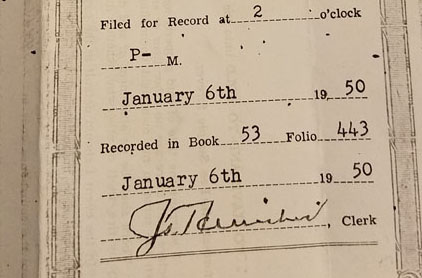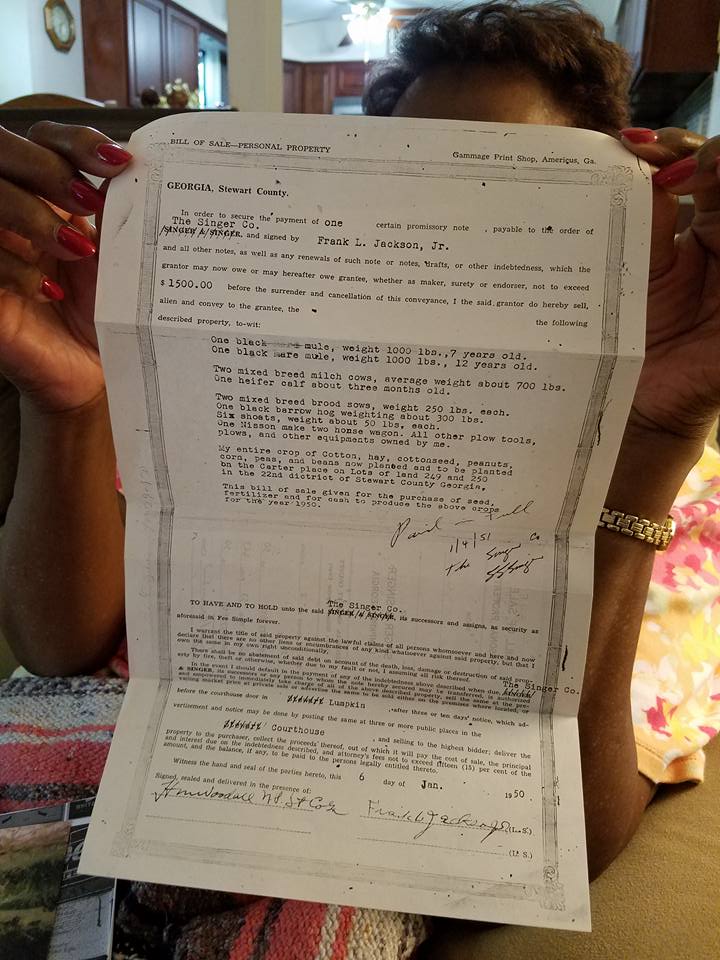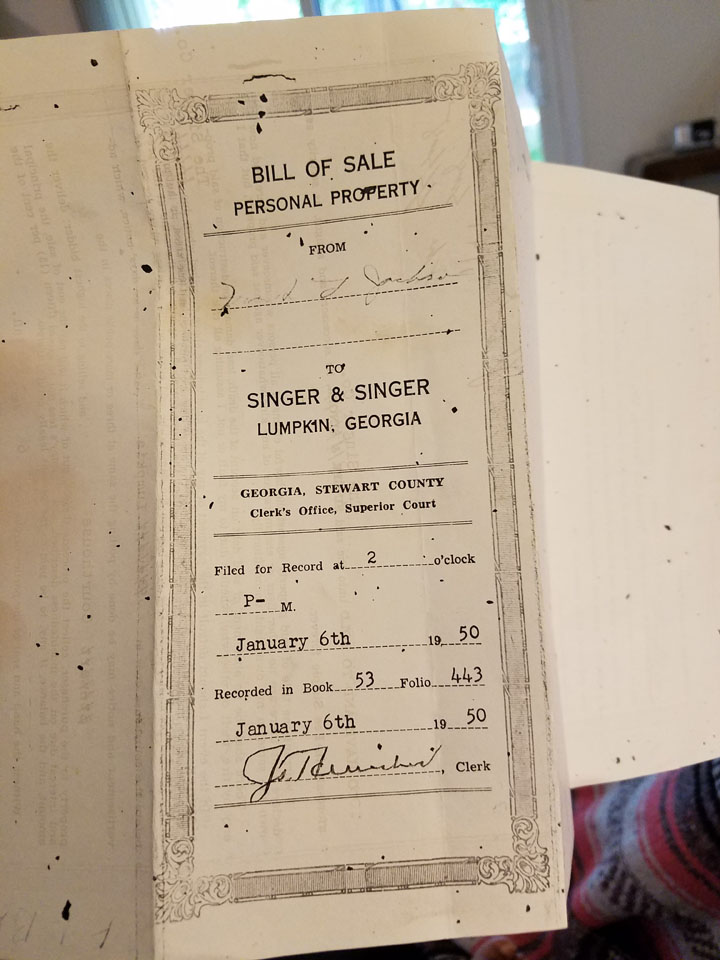Last night, while my cousin and I were watching “Roots” with my aunt, she explained to us how sharecropping was nothing more than slavery lite. She, my dad and their 12 other sisters and brothers were raised on a plantation in Omaha, Georgia, where my grandfather worked as a sharecropper. They farmed cotton and peanuts, and she told us how every season, after the crop was sold and it came time for my grandparents to “settle up” with the landlord for all the provisions they used throughout the year, they’d always be in debt. Always owe money for the work they did, because he owned the plantation store, set the prices and kept the books.
Then she showed us this bill of sale from 1950, where their landlord took every single thing they owned, in order to settle their debt. They had no crops, no cows, no mules and no hogs, which left them completely dependent upon him the following year. And when the next crop didn’t bring in enough to cover all those new expenses (because, somehow, it never did), he tacked on that debt to the next season, and the next…
This was 1950. Slavery had been outlawed nearly 100 years earlier, but my grandparents were no less tethered to that plantation than their great-grandparents..
So when folks ask, “Why can’t black people just…?”
This is why. It’s why we’re distrustful, why the achievement gap, why the wealth divide, why I wish a ************ would come at me with that, “Slavery ended 150 years ago; why don’t you just get over it?” Winning in life when you had a 330-year head start, is no achievement. But winning in spite of this is a huge source of pride for me. Ten of my grandparents’ fourteen children graduated college. They went on to own homes, raise healthy families, have great careers, run their own businesses. Imagine what they, and countless others, could have achieved if they playing field had been equal from the start—if it had ever been equal.



